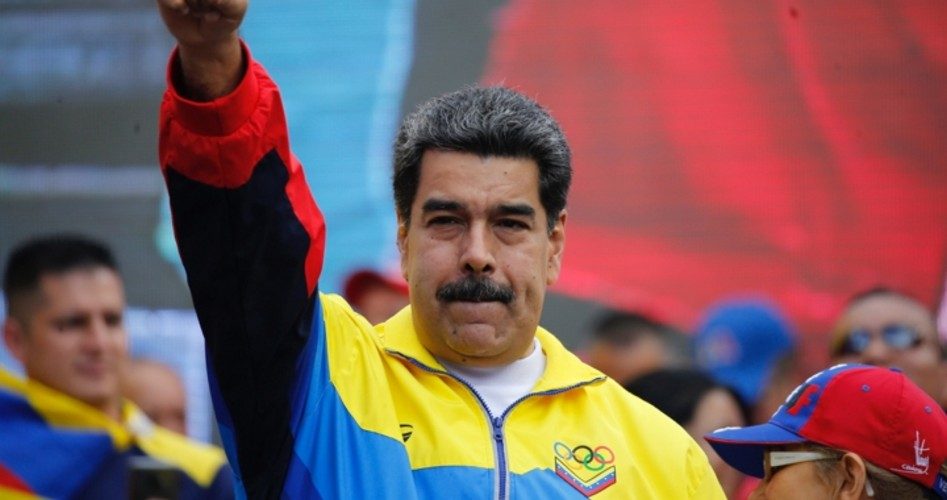
Podcast: Play in new window | Download ()
Subscribe: Android | RSS | More
Almost unnoticed by the mainstream media are recent decisions by Venezuela’s Marxist dictator, Nicolás Maduro, to relax some of the more debilitating of his economic policies. That relaxation is already leading to economic revival in the country’s cities.
As reported by Kejal Vyas from Caracas and published by the Wall Street Journal on Tuesday, Maduro “has quietly and cautiously begun implementing free-market policies … [his regime has] largely stopped enforcing the price controls that had led to dire food shortages … [which is] giving some life, even if limited, to the economy.”
The economy under Maduro is worse than America’s was at the bottom of the Great Depression, and the IMF is forecasting it will shrink by another 35 percent this year. More than four million of Venezuela’s 30 million residents have left the country, leaving the rest behind to cope with lack of food, medical services and supplies, disease, and starvation.
But, thanks to Maduro’s silent lifting of some of his more onerous restrictions, the economy is beginning to recover, at least in Caracas. Wrote Vyas: “Here in the capital … new stores have popped up, selling everything from boxes of Cheerios to bottles of water.” Reappearing on stores’ shelves are multiple brands of sugar, pasta and flour.
Maduro is also cutting back on the prime driver that has led his socialist regime to install price controls: printing of currency to pay the government’s bills that led inevitably to rapidly rising prices.
All of which is reminiscent of similar circumstances in Germany at the end of World War II: the country was devastated and the people were destitute. As William H. Peterson, a member of the Allied occupation forces, wrote: “German men and women, for the most part ragged, hollow-eyed, thin, forlorn-looking, peddle what wealth had escaped the bombing and the burning.”
In 1947, Ludwig Erhard, a student of free markets, was appointed director of economics for the Bizonal Economic Council, a creation of the American and British occupying authorities. On a Sunday night in June, 1948, Erhard announced his new policies over the radio: A new currency would be installed and nearly all price controls on food and other commodities would be immediately abolished.
As economic historian Robert A. Peterson wrote:
Almost immediately, the German economy sprang to life. The unemployed went back to work, food reappeared on store shelves, and the legendary productivity of the German people was unleashed.
Within two years, industrial output tripled. By the early 1960s, Germany was the third greatest economic power in the world. And all of this occurred while West Germany was assimilating hundreds of thousands of East German refugees.
In 1958, Erhard published Prosperity Through Competition, still available at Amazon. He explained what happened and why:
What has taken place in Germany … is anything but a miracle. It is [instead] the result of the honest efforts for a whole people who, in keeping with the principles of liberty, were given the opportunity of using personal initiative and human energy….
The successful rehabilitation of my country must serve as clear documentary evidence to put before the still vacillating and doubting peoples, of that fact that only by firmly rejecting socialist dogmas … and by affirming a free economic order can mounting prosperity and genuine security be achieved.
Whether Maduro has had a change of heart or is just relaxing temporarily his socialist policies that have so greatly limited his citizen’s economic freedoms remains to be seen. But the resuscitation taking place in Caracas must be occurring all across his unhappy country. If he wants it to continue he must let those “relaxations” become permanent so that his people, free now to work out their own economic destinies, can enjoy Adam Smith’s “invisible hand” that has always brought an improved standard of living wherever it has been allowed to operate.
An Ivy League graduate and former investment advisor, Bob is a regular contributor to The New American, writing primarily on economics and politics. He can be reached at [email protected].



